Moog’s new Messenger synthesizer has come calling for the clones
Don't shoot the Messenger: Moog might no longer be an all-American company, but it finally has an instrument to counter the cloned versions of its legendary analog synthesizers
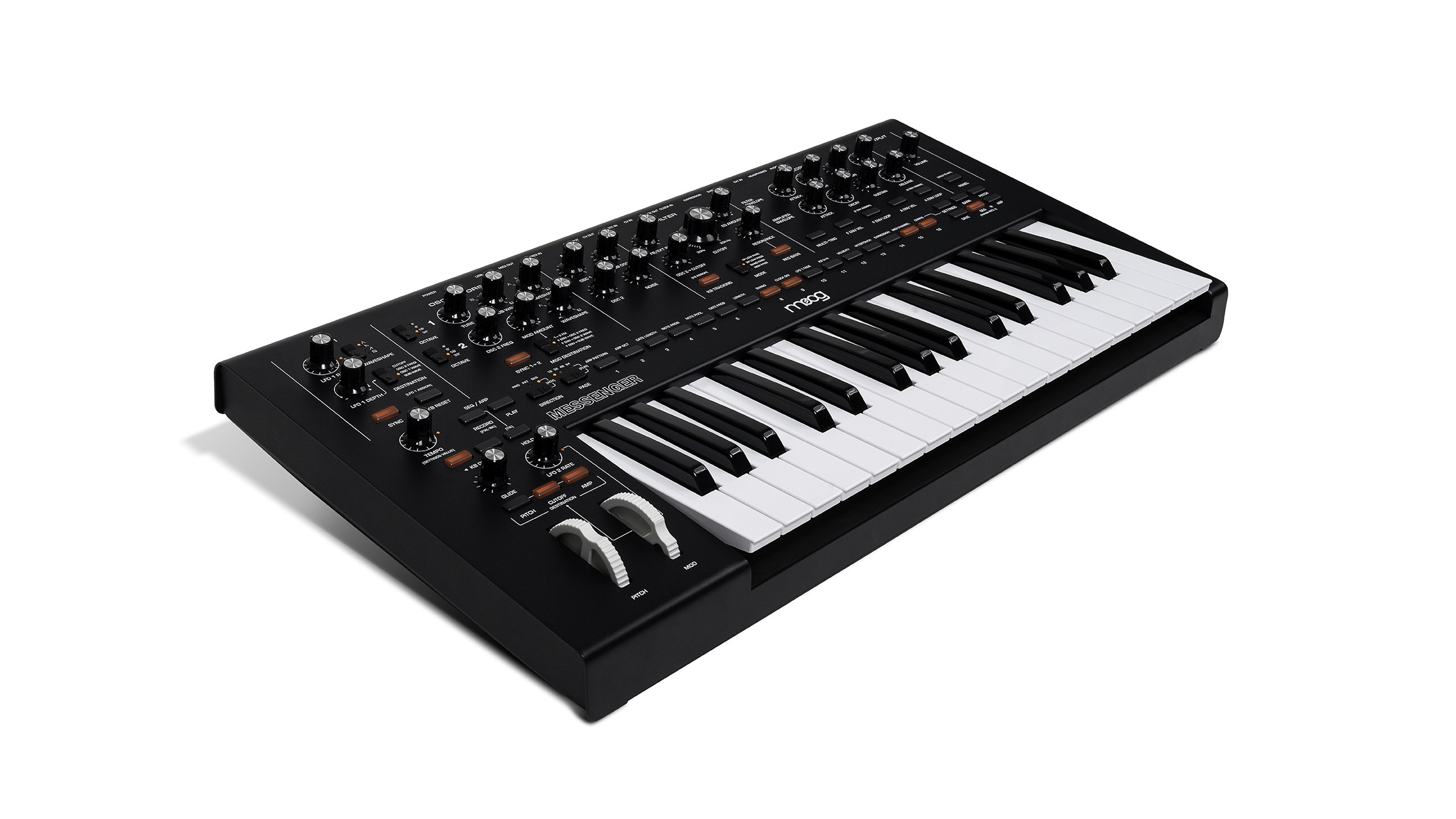
Receive our daily digest of inspiration, escapism and design stories from around the world direct to your inbox.
You are now subscribed
Your newsletter sign-up was successful
Want to add more newsletters?

Daily (Mon-Sun)
Daily Digest
Sign up for global news and reviews, a Wallpaper* take on architecture, design, art & culture, fashion & beauty, travel, tech, watches & jewellery and more.

Monthly, coming soon
The Rundown
A design-minded take on the world of style from Wallpaper* fashion features editor Jack Moss, from global runway shows to insider news and emerging trends.

Monthly, coming soon
The Design File
A closer look at the people and places shaping design, from inspiring interiors to exceptional products, in an expert edit by Wallpaper* global design director Hugo Macdonald.
Moog, perhaps the world’s most famous purveyors of synthesis, have announced the Moog Messenger, an ultra-compact monophonic analog synthesizer that distils decades of experience into a portable, hands-on instrument.
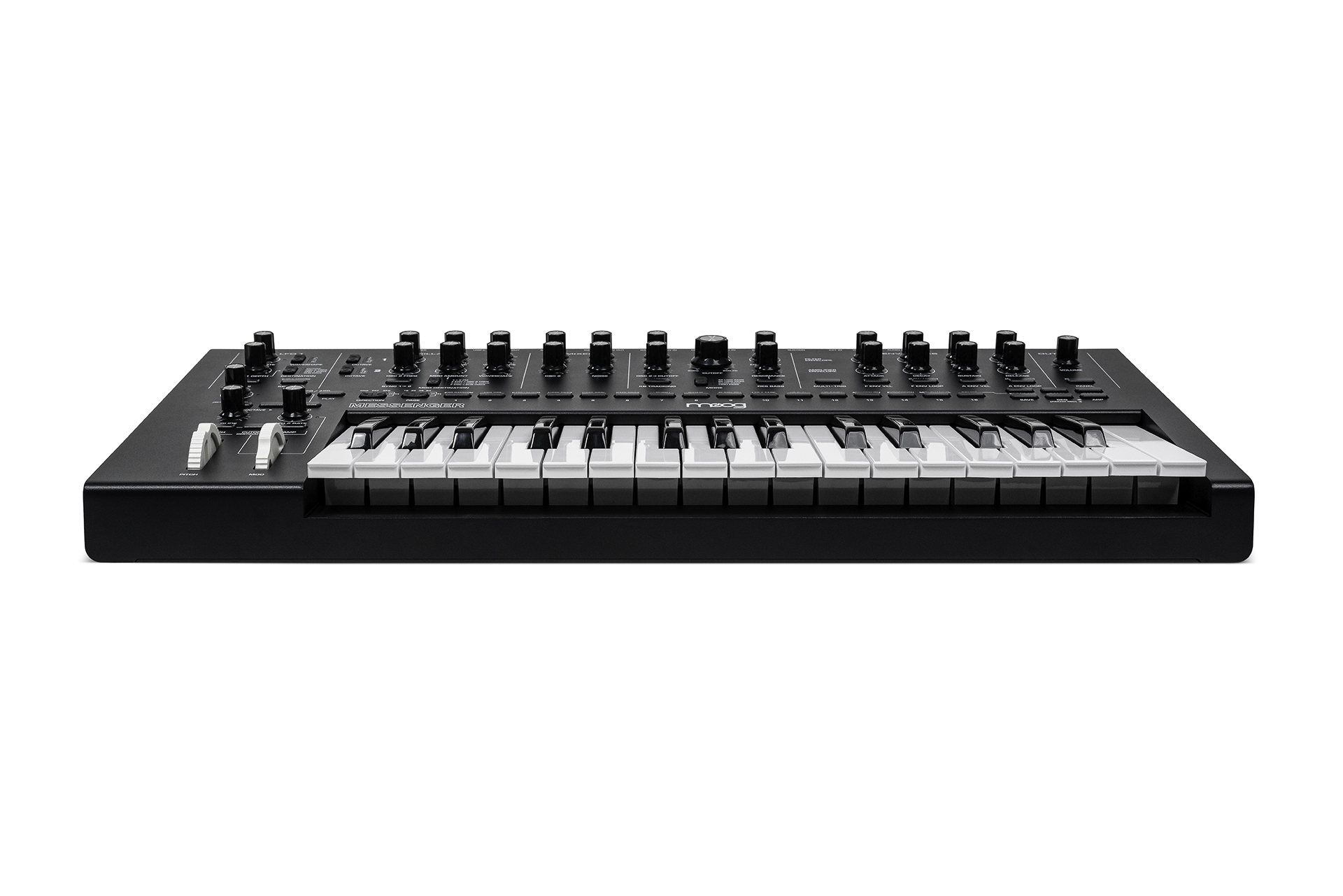
Moog Messenger Synthesizer
Analog synthesis is often prized by musicians over the often more flexible digital synthesis that evolved in the 70s and 80s. Moog was a pioneer in the former, which shapes its sounds via the electronic circuitry, not the chip-based software of the latter. It’s all a matter of taste, of course, but as with so many spheres of technology there’s a definite lean towards the grittier, warmer sound of analog electronics.
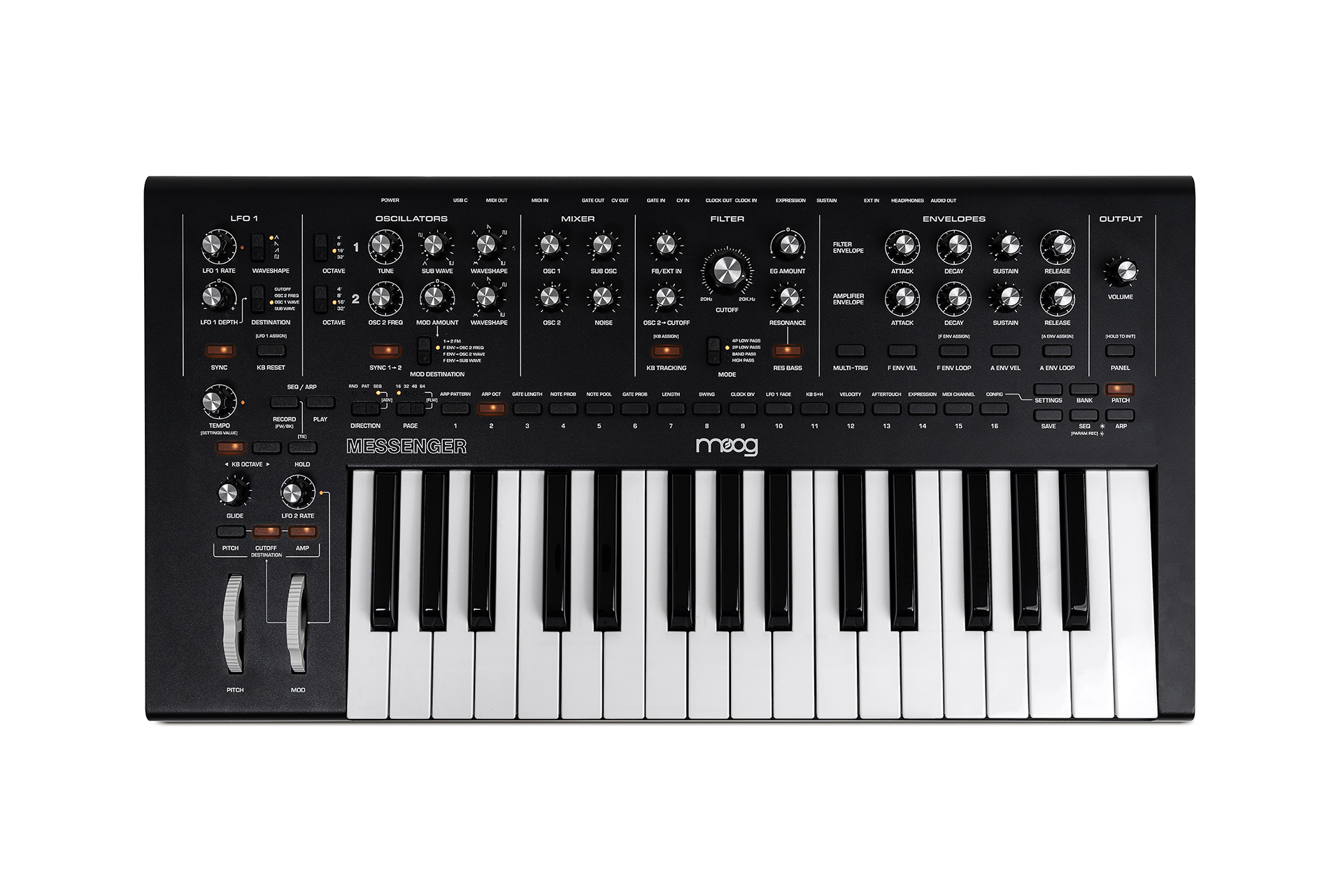
Moog Messenger Synthesizer
That ongoing affection has helped Moog survive and flourish, spiritually if not always financially. After reviving the Model D synthesizer and introducing new models like the Labyrinth, the Messenger takes the next step, adding new filters and oscillators to a compact unit complete with 32 semi-weighted keys (three octaves) and a host of knobs and dials to twiddle to shape the sound.
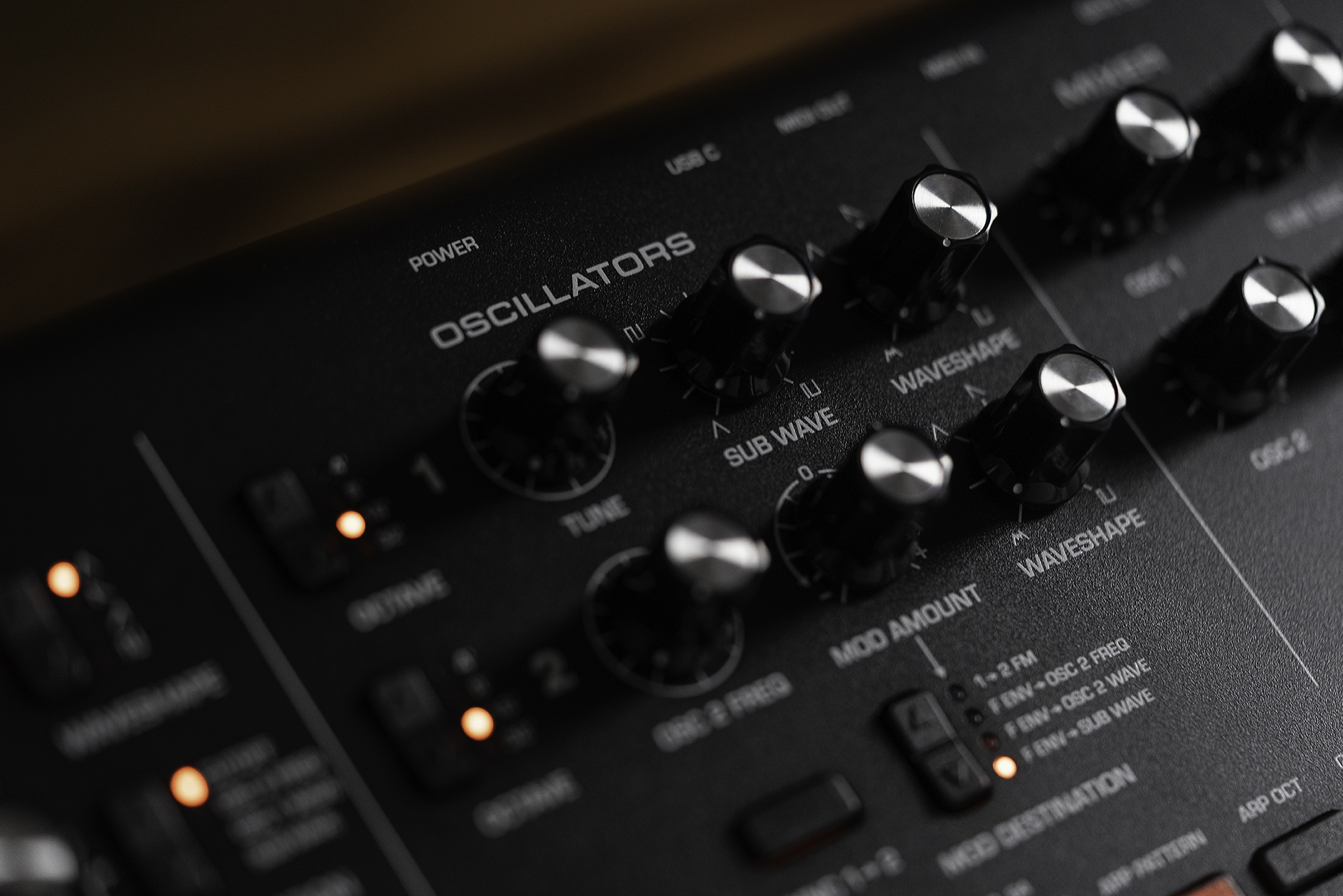
Moog Messenger Synthesizer control panel detail
Onboard you’ll find 256 presets, whilst the back panel has a full set of in/out connectors, including the all-important MIDI (5-pin and USB-C) as well as control voltage settings and clock in/out to sync up to other gear. ‘With Messenger, we aim to honour Moog's rich heritage while embracing the future of analog synthesis,’ says Joe Richardson, Moog Music President, ‘This instrument is crafted for musicians and producers seeking a portable, powerful monosynth that delivers the iconic Moog sound, enhanced with modern features and intuitive controls.’
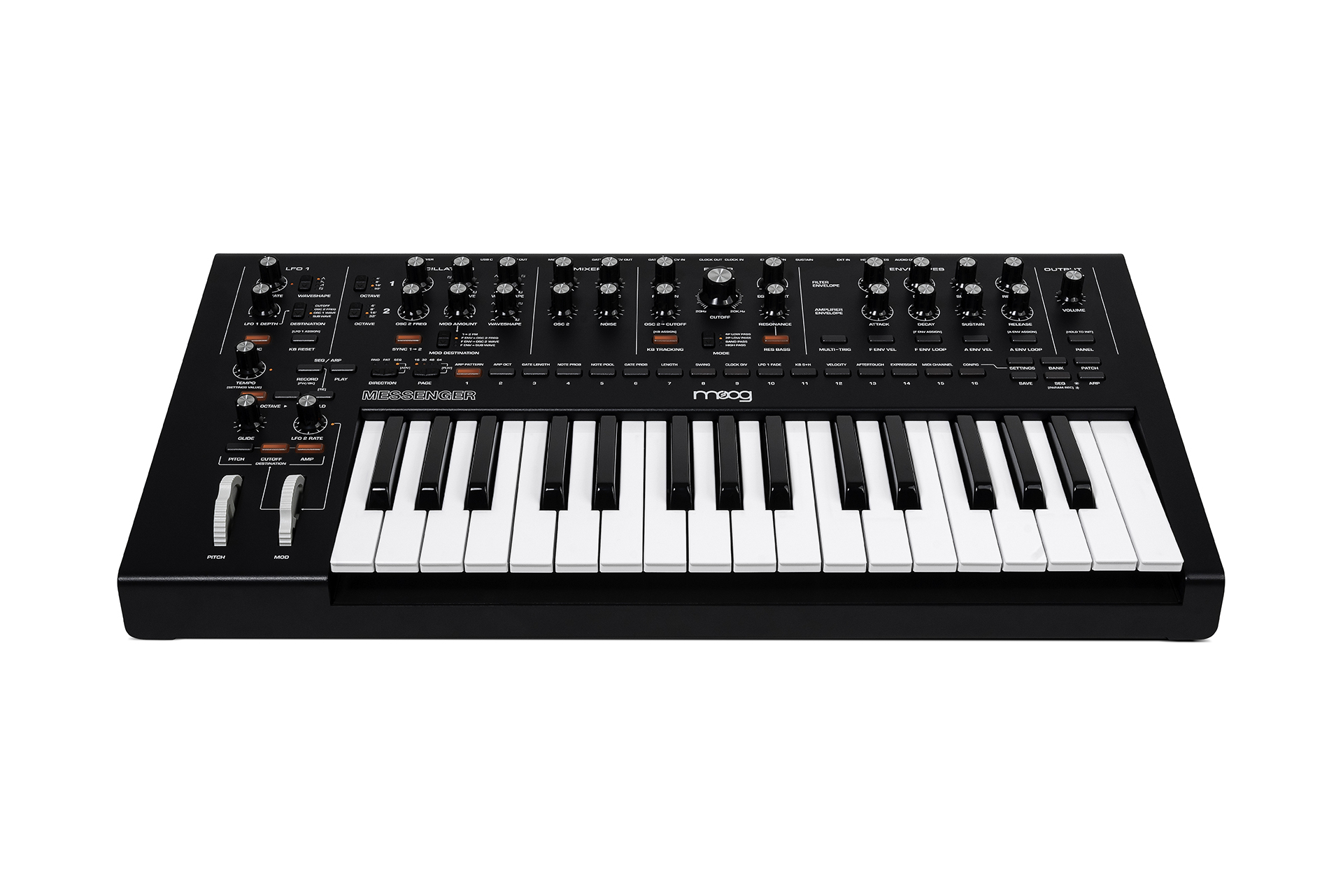
Moog Messenger Synthesizer
Designed for sonic experimentation and endless tweakability, Moog has given the Messenger a very performance-focused layout, ensuring each function gets its own dedicated control, negating the need for a screen or menu-diving to hunt through settings. The Messenger also gets an integrated 64-step sequencer and an arpeggiator with multiple different patterns.
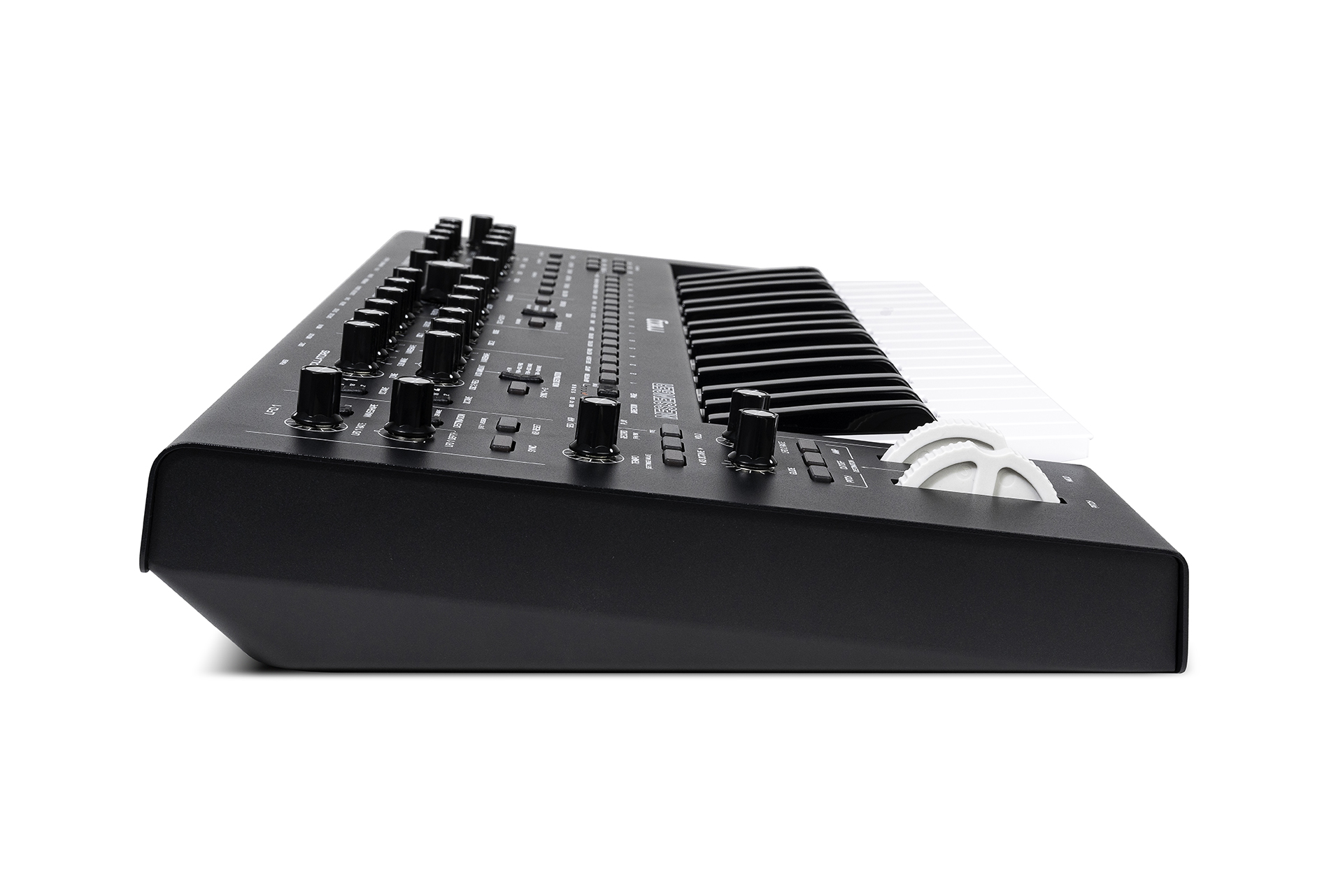
Moog Messenger Synthesizer
Erik Norlander, Director of Keyboard Product Development at Moog’s parent company inMusic. ‘Our goal was to create a synthesizer that invites immediate exploration - welcoming first-time Moog players and offering the depth and expressiveness that experienced musicians expect.’
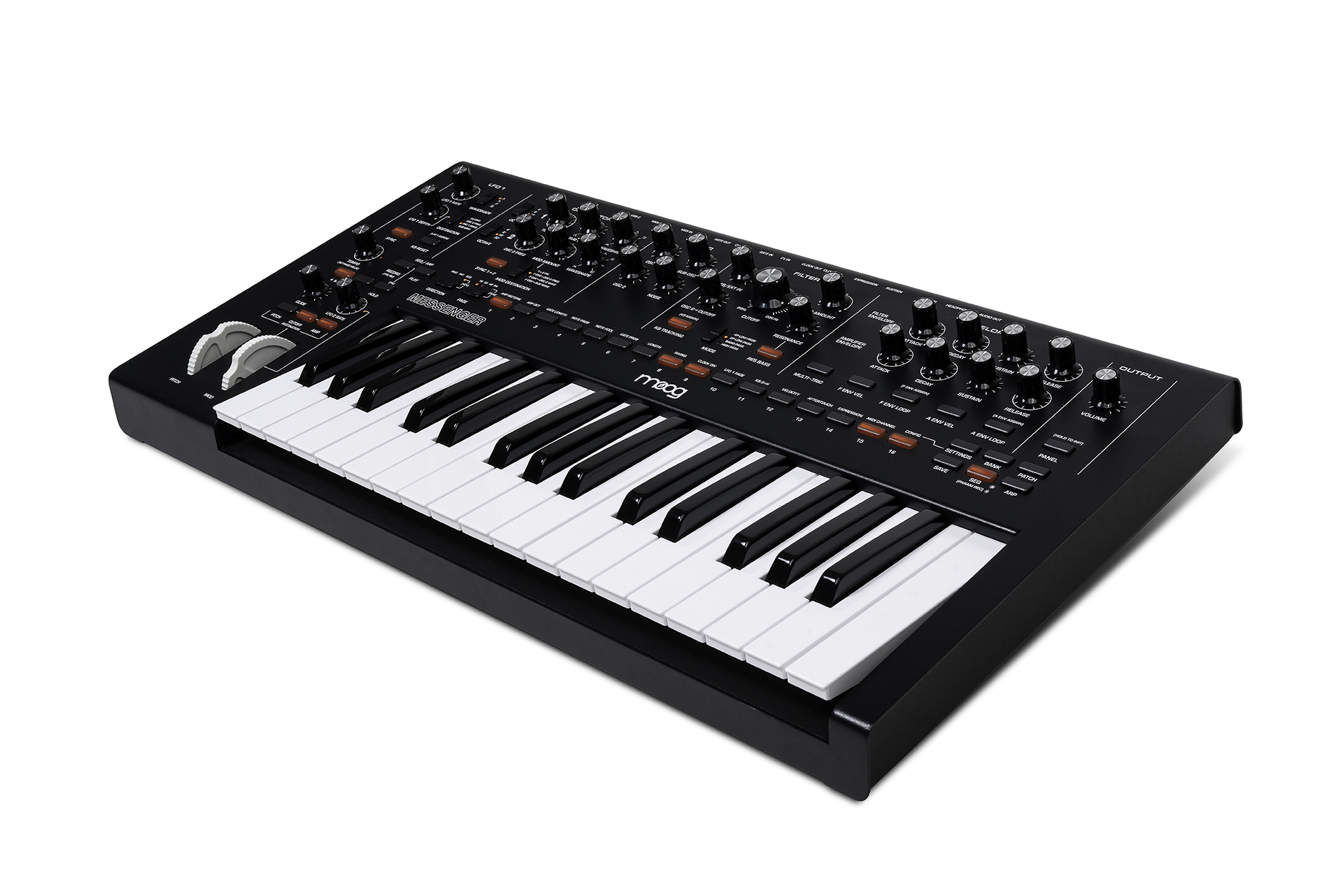
Moog Messenger Synthesizer
It’s worth noting that since its acquisition by inMusic, Moog has shifted a substantial amount of production away from its historic base in Asheville, North Carolina, and over to Asia. It’s a move that’s not without understandable controversy, but perhaps one that will keep this legendary name alive – will diehard fans of the brand flock to the Messenger or dismiss it as a prime example of jobs and skills being siphoned out of the American economy? On top on that, there may well be tariff-based hurdles to leap in order to achieve the goal of creating an affordable Moog for all.
Receive our daily digest of inspiration, escapism and design stories from around the world direct to your inbox.
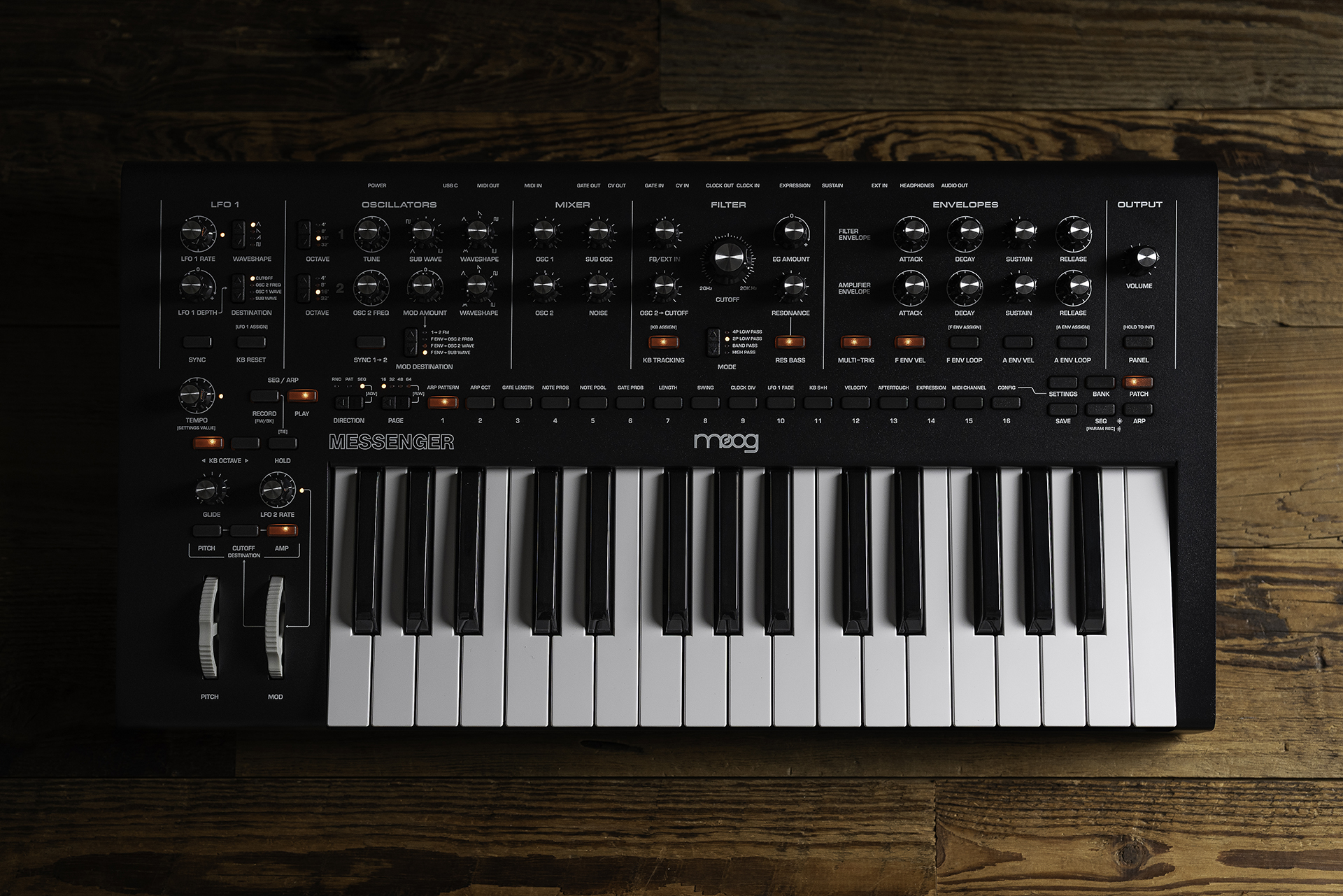
In many ways this was inevitable, especially when you compare the $5k price of the hand-built Model D synthesizer with the availability of ultra-affordable clones costing perhaps a tenth of that price yet with near-identical circuitry. With the arrival of the Messenger, Moog has tweaked itself to stay in the game.
Moog Messenger, $899, MoogMusic.com, @MoogSynthesizers
Jonathan Bell has written for Wallpaper* magazine since 1999, covering everything from architecture and transport design to books, tech and graphic design. He is now the magazine’s Transport and Technology Editor. Jonathan has written and edited 15 books, including Concept Car Design, 21st Century House, and The New Modern House. He is also the host of Wallpaper’s first podcast.